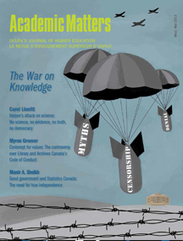 Your new post is loading...
 Your new post is loading...
Abstract
Trends in digital technologies and new social practices are calling for innovative models of learning in education. A recent development in the learning sciences, which conceptualises learning activity as networked learning, can offer deeper insight into how digital learning spaces influence the ensuing activity of learners. The networked approach coupled with social semiotics is applied in the analysis of Peep – a computer-based platform with social networking features that supports an undergraduate design course. This article illustrates how the networked learning approach and social semiotics reveal elements of the platform that enable design learning and foster social connections amongst students and lecturers. The article also examines the distribution of students’ activity and changes in their patterns of interaction over time.
Via Steven Verjans
MOOCs are, and will be, big business, and the way that their makers see profitability at the end of the tunnel is what gives them their particular shape. … the MOOCs which are now being developed by Silicon Valley startups … aim to do exactly the same thing that traditional courses have always done -transfer course content from expert to student - only to do so massively more cheaply and on a much larger scale. … MOOCs are simply a new way of maintaining the status quo, of re-institutionalizing higher education in an era of budget cuts, skyrocketing tuition, and unemployed college graduates burdened by student debt. … the California legislature proposes to solve a real systemic crisis - collapsing public resources, diminishing affordability, and falling completion rates in the state’s higher education system - by sending its students to MOOCs. … If this bill passes, the winners will be Silicon Valley and the austerity hawks in the California legislature … To put it quite bluntly, MOOCs are a speculative bubble, a product being pumped up and overvalued by pro-business government support and a lot of hot air in the media. Like all speculative bubbles—especially those that originate in Silicon Valley—it will eventually burst.
Via Peter B. Sloep
The academic conversation on MOOCs is starting to polarise in exactly the talking-past-one-another way that so many complex conversations evolve: with very smart points on either side, but not a lot of recognition that the validity of certain key points on one side does not undermine the validity of certain key points on the other.
Via Peter B. Sloep
In this paper, we look at how the massive open online course (MOOC) format developed by connectivist researchers and enthusiasts can help analyze the complexity, emergence, and chaos at work in the field of education today. We do this through the prism of a MobiMOOC, a six-week course focusing on mLearning that ran from April to May 2011. MobiMOOC embraced the core MOOC components of self-organization, connectedness, openness, complexity, and the resulting chaos, and, as such, serves as an interesting paradigm for new educational orders that are currently emerging in the field. We discuss the nature of participation in MobiMOOC, the use of mobile technology and social media, and how these factors contributed to a chaotic learning environment with emerging phenomena. These emerging phenomena resulted in a transformative educational paradigm.
Via Peter B. Sloep
Keynote at Athabasca University Graduate Students conference- Sept. 2012. Comment: a very rich presentation by Terry Anderson, covering his ideas about three generations of education pedagogy (cognitve-behaviourism, constructivism, connectivism), about MOOCs, about Living in a Networked Era (PLEs, the Athabasca Landing), about reserach in a networked world. Have a good look at slide 17, Terry's Interaction Equivalence theorem! (peter sloep, @pbsloep)
Via Peter B. Sloep
Starting August 12, 2012, Hybrid Pedagogy, an online journal of teaching and technology, will host a MOOC (Massive Open Online Course) designed specifically at looking carefully at this new pedagogical approach.
"... what the video using Gephi network software illustrates is the large number of totally unconnected nodes that seem to make up the majority of the MOOC participants." Comment: blog post by Terry Anderson about MOOCs, mainly about their high drop-out rates and what to think about it. In passing, he distinguishes between x-MOOCs (the CourEra, MTx, etc. type) and c-MOOCs (the Downes, Cormier and Siemans type). (peter sloep)
Via Peter B. Sloep
|
Francis Fukuyama wrote in 1997 “The End of History and The Last Man”, a book that became soon extremely popular and so influential that some say that international policies were shaped at that time by the strange vision promoted by the author. … It became clear that taking this as a vision for the future was a colossal mistake. … The current discourse and most visible debates in education currently take the same dangerous path of shallow analysis, tendentiousness, twist of facts to fit an agenda and stay relaxed with the suppression of alternative perspectives.
Via Peter B. Sloep
"While the assertion that the world is more "connected" now than ever before is beyond dispute, George Siemens' connectivist learning theory is anything but. Siemens' theory argues that learning exists in a networked system, the more nodes and bigger the pipes of the network, the more learning has taken place. Siemens puts forth this theory because he found the older learning theory models inadequate in the age of technology. However, critics have described the theory as being internally confusing, more pedagogical in approach than actual learning theory, and too reliant on an idea that learning exists in non-human structures."
Via Peter B. Sloep
Graham Attwell, one of the founding fathers of personal learning environments, trying to make sense of xMOOCs and cMOOCs. (Peter Sloep)
Via Peter B. Sloep
Marc Bousquet on what has become known as xMOOCs (bad) and cMOOCs (good) and on how xMOOCs may make their money, for somehow they need to come up with a return on the investments made by venture capitalists. Candidates are: charging for assessment, vending tutorial services, direct tuition for certain courses, advertising. The upshot is, although not put in that way, beware!, what looks like a good deal may turn sour in the end. Administrators shlould realize this but don't: "If institutions really wanted to sustain participatory learning [in cMOOCs], they would already be doing so, for instance, by reducing lectures and high-stakes testing, investing in teaching-intensive faculty and the like. Instead, driven less by cost concerns than a desire to standardize and control both faculty and curriculum, administrations rely more than ever on lectures and tests [xMOOCs]". (peter sloep)
Via Peter B. Sloep
|



 Your new post is loading...
Your new post is loading...


















